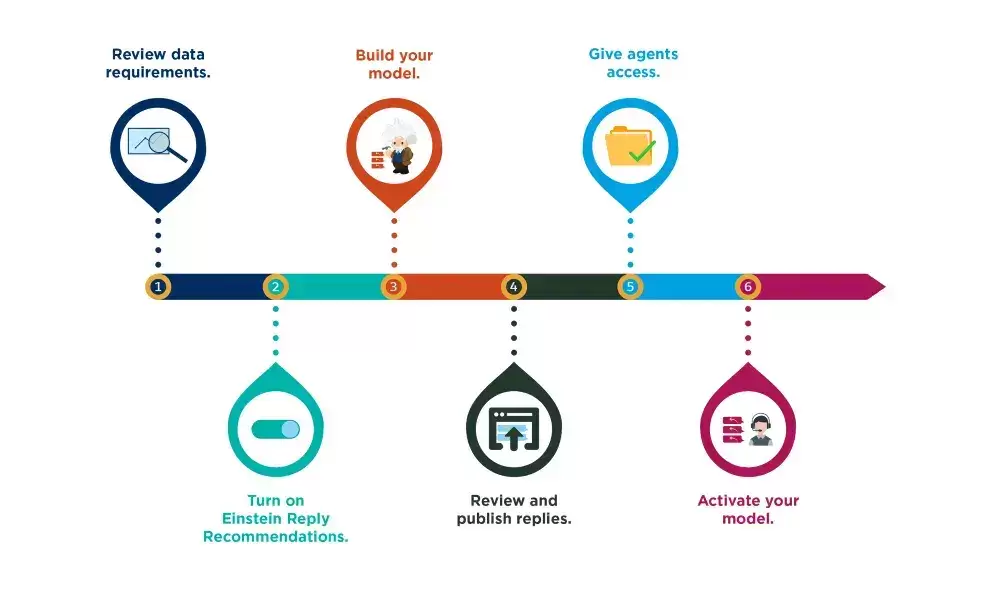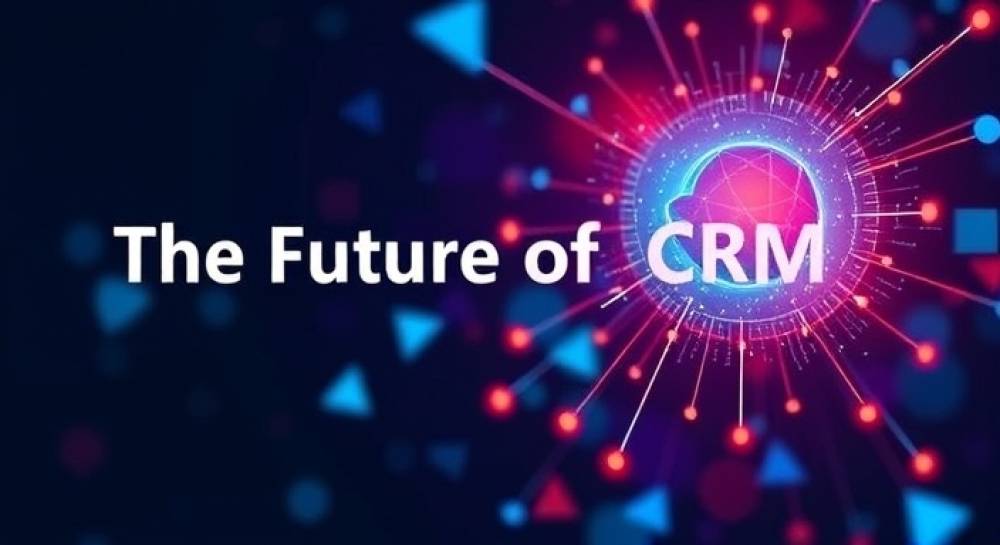
Enhancing Customer Service with Einstein Reply Recommendations
In today’s fast-paced digital world, providing quick and accurate responses to customer queries is essential for customer satisfaction. Salesforce Einstein Reply Recommendations can help organizations achieve this goal by offering AI-generated responses during customer interactions. This blog will guide you through setting up and using Einstein Reply Recommendations, a tool designed to enhance customer service and reduce agent handling time. From improving response accuracy to boosting team efficiency, Einstein has the power to transform your customer service experience.
What is Einstein Reply Recommendations?
Einstein Reply Recommendations is an AI-powered tool in Salesforce that offers agents a list of suggested replies in real-time during messaging and chat conversations. These replies are generated using deep learning and natural language processing (NLP), based on historical chat transcripts from your organization. With these suggestions at hand, agents can respond to customers quickly and accurately without searching through notes or consulting colleagues.

This smart AI technology gathers data from closed chat transcripts and analyzes patterns in customer queries and agent responses. Once the data is processed, Einstein organizes it into a list of suggested replies that agents can use in future conversations. You can fine-tune these replies, publish them, and update them over time to reflect changes in customer service needs.
Benefits of Einstein Reply Recommendations
Implementing Einstein Reply Recommendations offers several benefits to customer service teams:
1. Faster Response Times: With relevant reply suggestions instantly available, agents can reply to customers in less time.
2. Improved Accuracy: Since suggestions are based on past successful responses, the likelihood of providing accurate solutions increases.
3. Focus on Complex Issues: By handling routine questions with AI-generated replies, agents can focus their energy on more complex or nuanced customer issues.
4. Standardized Responses: Using recommended replies helps ensure that your team communicates in a consistent and professional manner.
5. Shortened Case Resolution Time: With Einstein providing the right response at the right time, agents can close chat and messaging sessions faster, ultimately improving customer satisfaction.
Setting Up Einstein Reply Recommendations
Setting up Einstein Reply Recommendations involves several important steps. To ensure smooth deployment, follow these steps carefully:
Step 1: Check Your Einstein Readiness
Ensure your Salesforce org meets the license and edition requirements for using Einstein. If you’re unsure, contact your Salesforce account executive for guidance.
Step 2: Set Up the Prerequisites
Before activating Einstein Reply Recommendations, complete these key steps:
Turn on Einstein Generative AI
This step enables the foundational AI technology needed for Reply Recommendations.
Set up Salesforce Knowledge
Start with at least 10 articles to ensure high-quality results.
Configure Service AI Grounding
Grounding tells Einstein which case fields and knowledge articles to focus on when generating replies, ensuring personalized and detailed responses.
Step 3: Set Up Article Recommendations (Optional)
Article Recommendations help surface the most relevant knowledge articles to customers’ queries. Agents can choose to draft an email based on Einstein’s recommendations, ensuring consistency and accuracy in replies.
Using Einstein Reply Recommendations in Chat and Email
Once the prerequisites are in place, it’s time to activate Einstein Reply Recommendations for both chat and email communications:
Chat and Messaging
Agents will see Einstein’s suggested replies right next to their chat window, which they can select, edit, and send directly to the customer. These suggestions are based on either the conversation context or knowledge articles.
Conclusion
Salesforce Einstein Reply Recommendations is a powerful tool that can significantly improve your customer service experience. By leveraging AI-generated replies, your agents can reduce response times, increase accuracy, and focus on more complex customer issues. With careful setup and the right data, your organization can unlock the full potential of AI-powered customer service.
Start exploring Einstein Reply Recommendations today and experience a new level of customer satisfaction!
About the Author
Muhammad Arham is a talented Salesforce Certified Developer and Consultant with five certifications and over two years of practical experience. He’s known for delivering creative and effective Salesforce solutions, tailoring custom implementations to help businesses run more smoothly, improve user experiences, and increase overall productivity. His work has made a significant impact on various projects, demonstrating his deep knowledge and hands-on approach to optimizing Salesforce environments.






